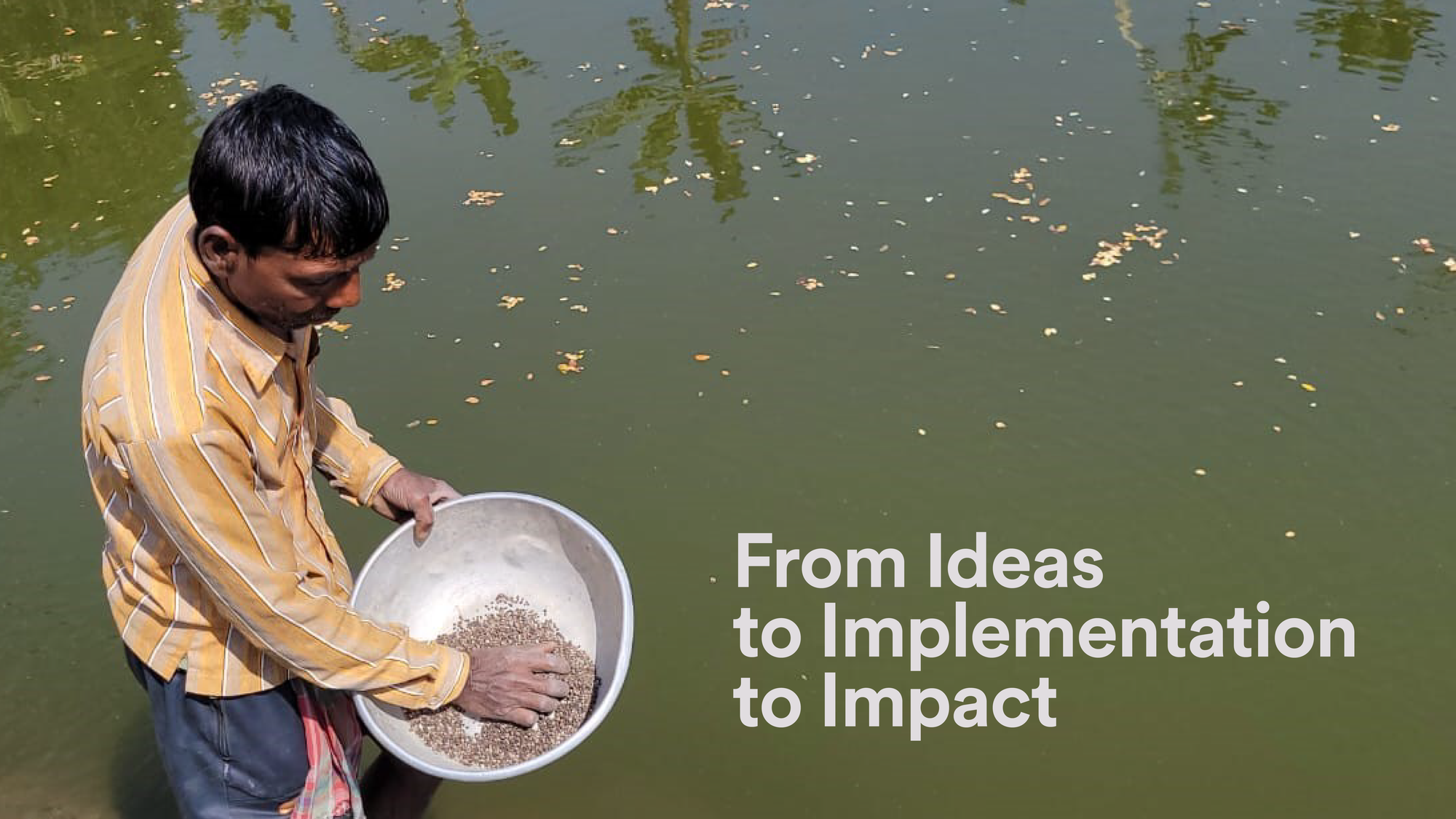
A K2A Story
In January 2021, Jenia Mukherjee and her team of researchers working in the Indian Sundarban Islands, an extensive network of rivers and islands at the mouth of the Bay of Bengal, were approached by the fishing community of the remote village of Kumirmari. Despite having extensive knowledge of coastal life, the fishing communities face a growing existential threat to their livelihood: climate change. Traditional fishing techniques in mangroves have become increasingly challenging, primarily due to the rising sea level, farmlands poisoned by salt water and Bengal tigers on the prowl. So, the community turned to Jenia, seeking to develop inland fishing methods instead and requesting scientific advice on how to do it. Jenia, who is a professor at the Indian Institute of Technology, Kharagpur, started to work closely with the local communities along with her team to devise a sustainable solution that would win their trust in evidence-based action. But who would support the then small initiative?
Knowledge to Action (K2A) is a network that advances the United Nations Sustainable Development Goals (SDGs) in South Asia and addresses the implementation gap of academic research. K2A is a joint initiative launched in 2019 by Swissnex in India in collaboration with HETS Fribourg and the University of Lausanne with the support of swissuniversities.
Jenia and her team co-created a rigorous instruction manual with the fishing community with their first K2A small grant in 2021. However, the outcome was still theory for action, not the action itself. The team then received a second small K2A grant in 2022, which was used for proof of principle and was the base for applying for the Solution-oriented Research for Development (SOR4D) grant. In 2023, Jenia and her collaborators won a prestigious SOR4D grant from the Swiss National Science Foundation and the Swiss Agency for Development and Cooperation. The grant helped them to scale their K2A work to a trilateral multi-year project involving stakeholders from research, NGOs and communities in the Indian and Bangladeshi parts of the Sundarbans. SOR4D awarded seven grants out of 75 shortlisted proposals.
Local subject knowledge backed by academic engagement and proper funding paved the way for this fundamental transformation of knowledge into action. As Jenia and her team take their efforts to new heights, they leave the fishing community with a strengthened trust in evidence-based action and the work of scientists.